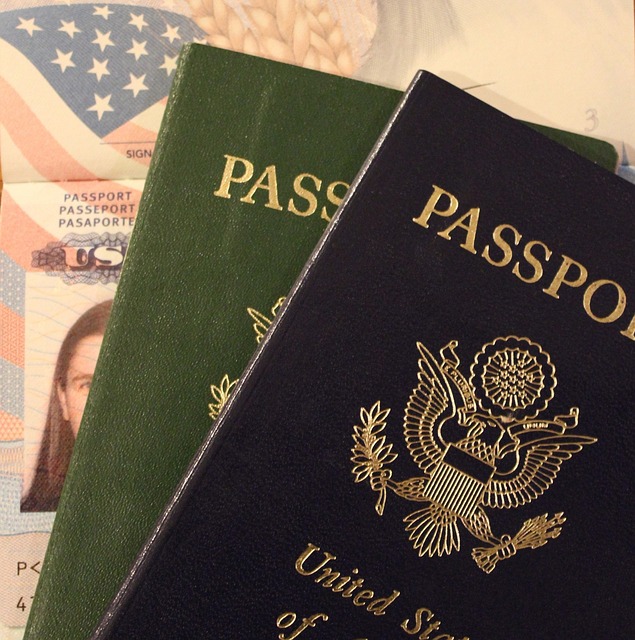Common Reasons for Citizenship Denial

Obtaining citizenship in a new country is a significant milestone, but the process can be complex and challenging. Many applicants face the disappointment of having their citizenship application denied due to various reasons. Understanding these common pitfalls can help you prepare a stronger application and avoid potential issues. In this guide, we’ll explore the most common reasons for citizenship denial and provide tips to improve your chances of success.
1. Failure to Meet Residency Requirements
Most countries require applicants to have lived in the country for a specific period before applying for citizenship. Common issues include:
- Insufficient Time: Not meeting the minimum residency period (e.g., 5 years in the U.S., 5-10 years in many European countries).
- Frequent Travel: Spending too much time outside the country during the required period, which may be seen as a lack of commitment to residency.
- Illegal Stay: Any period of illegal residence typically disqualifies you from meeting residency requirements.
Tip: Keep detailed records of your time in the country, including entry and exit dates, to prove you meet the residency requirement.
2. Criminal Record
A criminal record is one of the most common reasons for citizenship denial. Issues include:
- Serious Crimes: Convictions for serious offenses like fraud, violence, or drug trafficking.
- Minor Offenses: Even minor offenses, such as DUIs or petty theft, can lead to denial in some countries.
- Pending Charges: Outstanding criminal charges or unresolved legal issues.
Tip: Consult an immigration lawyer to understand how your criminal record may impact your application and whether you can apply for a waiver or rehabilitation.
3. Lack of Financial Stability
Many countries require proof of financial stability to ensure you can support yourself and your family. Common issues include:
- Unemployment: Being unemployed or underemployed during the application process.
- Public Benefits: Relying heavily on government assistance or welfare programs.
- Debt: Significant unpaid debts or bankruptcy.
Tip: Maintain stable employment, pay taxes, and avoid relying on public benefits to demonstrate financial stability.
4. Failure to Pass Language and Civics Tests
Many countries require applicants to pass language proficiency and civics tests. Common issues include:
- Language Barriers: Inability to speak, read, or write in the country’s official language(s) at the required level.
- Lack of Knowledge: Failing to demonstrate sufficient knowledge of the country’s history, government, and culture.
Tip: Take language classes and study the country’s history and government to prepare for the tests.
5. Incomplete or Incorrect Application
Errors or omissions in your application can lead to denial. Common issues include:
- Missing Documents: Failing to provide required documents, such as birth certificates, marriage certificates, or proof of residency.
- Incorrect Information: Providing inaccurate or inconsistent information.
- Missed Deadlines: Failing to submit the application or required documents on time.
Tip: Double-check your application for accuracy and completeness, and seek professional help if needed.
6. Fraud or Misrepresentation
Providing false information or documents is a serious offense that can result in denial and even deportation. Common issues include:
- Fake Documents: Submitting forged or altered documents.
- False Statements: Lying about your background, employment, or criminal history.
- Marriage Fraud: Entering a sham marriage to obtain citizenship.
Tip: Always provide truthful and accurate information. If you’re unsure about a requirement, consult an immigration lawyer.
7. Security Concerns
Countries may deny citizenship if they believe you pose a security risk. Common issues include:
- Terrorist Links: Any association with terrorist organizations or activities.
- Espionage: Suspected involvement in espionage or activities against the country’s interests.
- Human Rights Violations: Involvement in war crimes or human rights abuses.
Tip: Be transparent about your background and avoid any activities that could raise security concerns.
8. Dual Citizenship Restrictions
Some countries do not allow dual citizenship, meaning you must renounce your original citizenship to become a citizen. Common issues include:
- Refusal to Renounce: Unwillingness to give up your original citizenship.
- Complex Renunciation Process: Difficulty in renouncing citizenship due to your home country’s laws.
Tip: Research the dual citizenship policies of both your home country and the country where you’re applying for citizenship.
9. Health Issues
Some countries may deny citizenship if you have certain health conditions that could pose a public health risk or burden the healthcare system. Common issues include:
- Communicable Diseases: Conditions like tuberculosis or HIV.
- Chronic Illnesses: Severe illnesses requiring long-term care.
Tip: Undergo a medical examination and provide all required health documentation. Some countries may allow exceptions for certain conditions.
10. Lack of Integration
Countries may assess your integration into society, including your participation in community activities and adherence to cultural norms. Common issues include:
- Isolation: Limited interaction with the local community.
- Cultural Differences: Failure to adapt to the country’s cultural and social norms.
Tip: Engage in community activities, learn the local language, and demonstrate your commitment to integrating into society.




